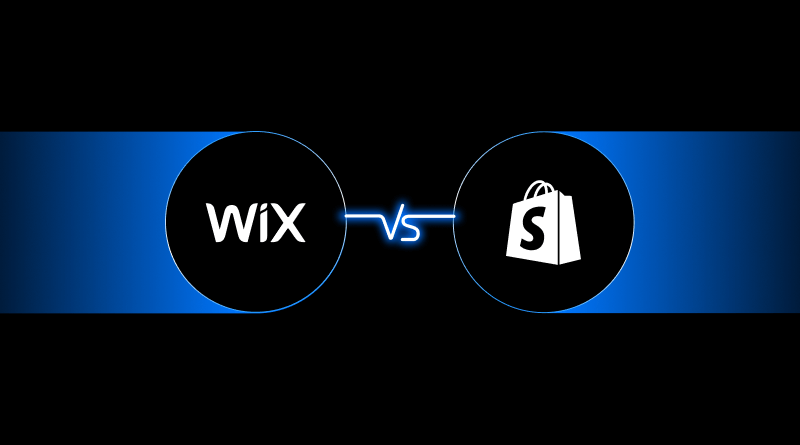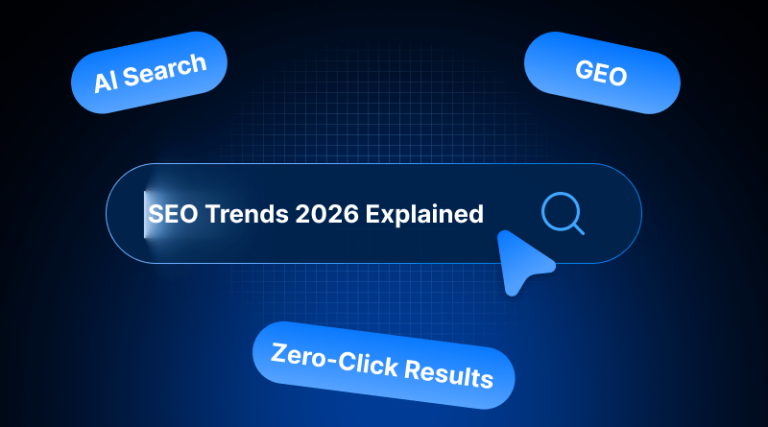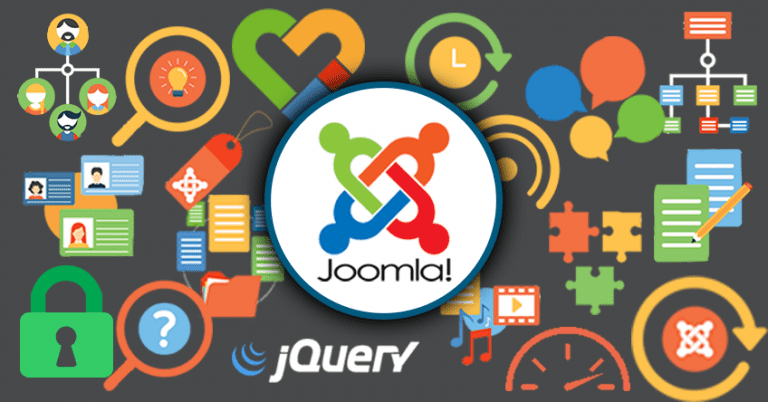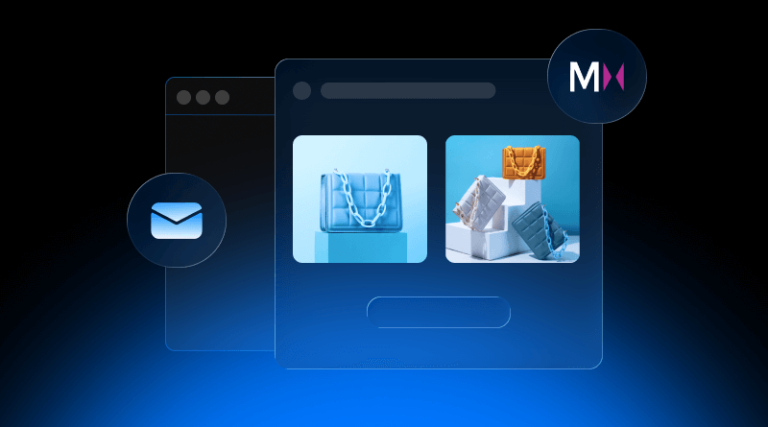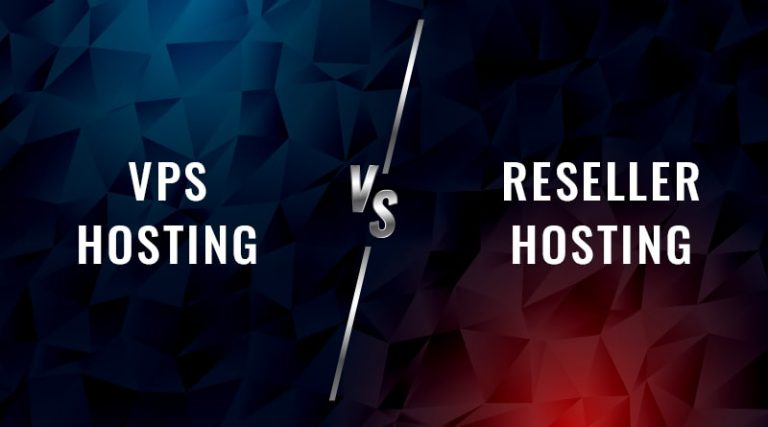Setting up an ecommerce store from the beginning is filled with a lot of challenges and complexities. It deals with low budgets and competitive marketplaces, ensuring seamless purchases and post-purchase experiences. Throughout the process, merchants have to go through an intensive process from deciding on a niche to selecting the best ecommerce hosting plan.
Shopify offers simplicity, accessibility to 8000+ apps, and 100+ templates. Whereas Wix is versatile and affordable for Indian merchants. This is again a surface-level comparison.
This detailed comparison of Shopify and Wix will strengthen your decision-making power for your business. Read on to find out which is better.
Table Of Content
Wix vs. Shopify: In-Depth Comparison
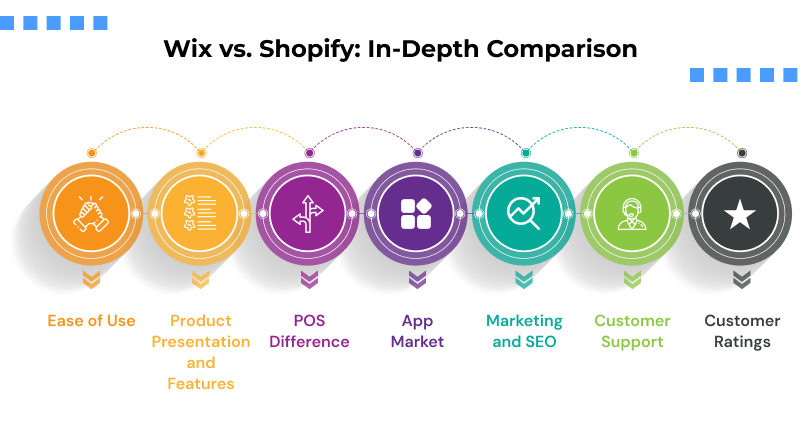
1. Ease of Use
Shopify is a crucial solution for online stores; it is the easiest solution to access. However, users can set up the store instantly within a few clicks. Tutorials are available for beginners for instant store setup. It is helpful because non-tech-savvy users need hours of configuration to build an optimized store.
Wix shares similar features with WordPress. It focuses on being easy to use for creating ecommerce stores and websites. It is one of the easiest website builders, like our AI website builder. The user experience is excellent, and their tutorials and step-by-step guides and
We often refer to Wix as one of the easiest website builders out there. Their user experience is excellent, and their tutorials and step-by-step guides are well written and easy to use.
2. Product Presentation and Features
Both Wix and Shopify restrict the variant number that is added per product. Shopify allows for three options per item (such as color, size, and style) and a total of 100 unique variants. Wix allows for six options per item and a total of 1000 unique variants.
Glossary: The “variant number” refers to the total count of unique combinations of options available for a single product.
Wix has more to offer in designing and layout patterns. It has a versatile website builder complemented by robust business and marketing tools. Users can showcase product galleries with advanced, interactive photos and video galleries supporting zoom and different viewing formats.
3. POS Difference
Point of Sale (POS) software integration in ecommerce stores determines the revenue stream of the platform. Shopify and Wix for POS systems are different. Shopify is known as the superior option due to its comprehensive, scalable, and internationally available ecosystem. Its POS system is an extension of a powerful ecommerce platform, with seamless integration between online and physical stores and extensive reporting features.
Wix POS has a basic solution that serves as an add-on feature for businesses using the Wix website builder. Its accessibility is limited to the United States of America and Canada. Users need the proprietary hardware, which is a key limitation for merchants who want to use Wix POS on multiple devices.
4. App Market
When it comes to enhancing the website’s functionality, Wix and Shopify have robust app marketplaces. Wix follows a native solution approach. It means the platform offers tools that seamlessly integrate with the Wix ecosystem. The umbrella approach works for Wix, where many third-party apps on the other platform keep their business solutions under one roof.
Wix’s App Market boasts over 750 apps from pre-vetted partners. It offers a wide variety of choices across various industries and types of websites. Shopify, however, boasts a massive range of over 16,000 apps in the ecommerce vertical. Shopify apps focus on shipping and logistics, while Wix’s apps are directed toward industries such as hotels, gym use, and web-based bookings.
5. Marketing and SEO
When we talk about marketing and SEO features, both Shopify and Wix have powerful tools with subtle differences. Wix has a comprehensive in-house CRM suite of marketing solutions. It offers a one-stop shop for merchants seeking advanced functionality and third-party app management.
Both platforms have covered fundamental SEO tools from an optimization point of view. Shopify handles some of the technical SEO aspects, like generating canonical tags and sitemaps, editing title tags, and adding robot.txt files.
Wix matches the capabilities configured for experienced marketers. You are getting direct ad campaign management from the Wix dashboard, direct integration tools like Semrush, and even AI powered assistance for creating SEO-friendly content and meta tags.
6. Customer Support
Wix and Shopify have powered multichannel customer support systems, including phone, chat, and email. Most of the inquiries are resolved within 24 hours. They have helpdesks and insightful knowledge bases to assist with all kinds of troubleshooting needs.
Wix customer support includes:
- 24×7 phone assistance for English speakers.
- Live Chat (Mon to Fri, 2 am to 6 pm ET (Eastern Time)).
- Ticket submission.
- Help Center (FAQ and community forum).
- Knowledge base with video tutorials.
Shopify customer support includes:
- 24/7 chat support
- Shopify Community
- Help Center
7. Customer Ratings
Reviews show Wix is a customer-friendly tool. It garnered better reviews with 4.1/5 ratings. Most reviews are posted on the Trustpilot platform, where MilesWeb scores 4.8/5. Shopify has settled with poor ratings of 1.3/5 on Trustpilot. The lack of customer support was the major reason for it.
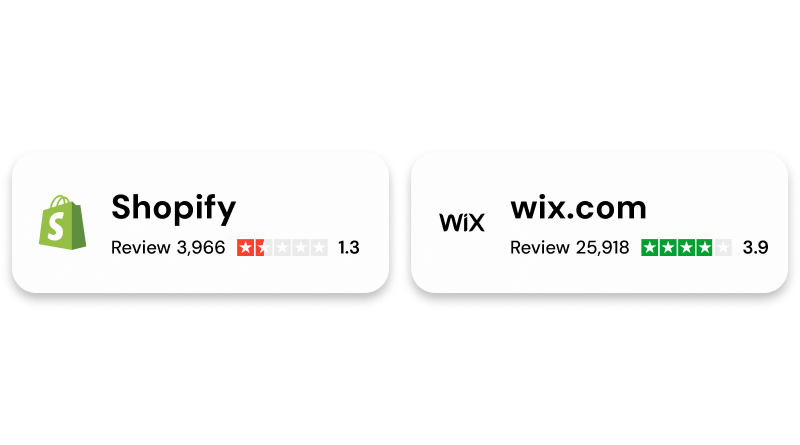
Wix vs. Shopify Pricing
Wix
| Feature | Light | Core | Business | Business Elite |
| Monthly Price | $17/mo | $29/mo | $39/mo | $159/mo |
| Free Domain | 1 year | 1 year | 1 year | 1 year |
| Storage Space | 2 GB | 50 GB | 100 GB | Unlimited |
| Hosting Type | Multi-cloud | Multi-cloud | Multi-cloud | Multi-cloud |
| Marketing Suite | Light | Basic | Standard | Advanced |
| Site Collaborators | 2 | 5 | 10 | 100 |
| Accept Payments | ❌ No | ✅ Yes | ✅ Yes | ✅ Yes |
| ecommerce | ❌ No | Basic | Standard | Advanced |
Shopify
| Feature | Basic | Grow | Advanced | Plus |
| Target Audience | Solo Entrepreneurs | Small Teams | Scaling Businesses | Complex Businesses |
| Subscription Term | Billed Yearly | Billed Yearly | Billed Yearly | 3-Year Term |
| Starting Price (USD/month) | $18.06 | $67.46 | $273.25 | $2,108.43 |
| 3rd-Party Card Rates | Starting at 2% | Starting at 1% | Starting at 0.6% | Competitive (for high-volume) |
| Inventory Locations | 10 | 10 | 10 | 200 |
| Staff Accounts | 1 | 5 | 15 | Unlimited |
| Customizable Checkout | ❌ No | ❌ No | ❌ No | Fully Customizable |
Wix and Shopify serve different needs and different target audiences. Small and medium businesses should consider Wix because it is more affordable and offers greater design flexibility. With its advanced ecommerce tools and scalability, Shopify is better suited to larger, growing stores, but its costs are higher. The majority of users who value simplicity, creative flexibility, and budget-friendly plans choose Wix.
FAQs
1. Should I use Shopify or Wix for my small business?
If you’re looking for design flexibility and are running a small-scale product or service store, Wix is a better option. If you’re serious about ecommerce and want to scale, or need to manage a lot of products, Shopify is better.
2. How do Shopify and Wix compare for monthly pricing?
Wix’s ecommerce plans are comparable to or a little less expensive than Shopify, although Shopify’s high-tier pricing plans for scaling will be a higher upfront cost but offer benefits that no other ecommerce platforms have.
3. How do Shopify and Wix compare for inventory management?
Shopify has a stronger and more dedicated inventory management specifically built for scaling businesses and managing multi-stores and gives an unlimited number of products. Wix, on the other hand, has a simpler tool to manage inventory for a small business, and there are limits to fewer than 50,000 products.
4. Which has better design flexibility, Shopify or Wix?
Wix has better design flexibility than Shopify does. Wix has easy and intuitive drag-and-drop editing tools and a larger selection of templates, giving you more room for creativity instead of only using a strict layout for ecommerce.

